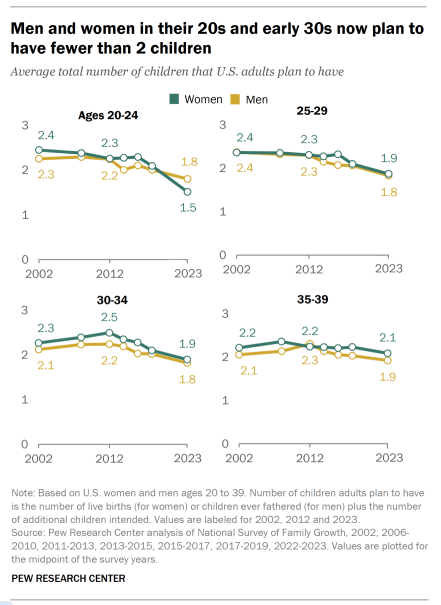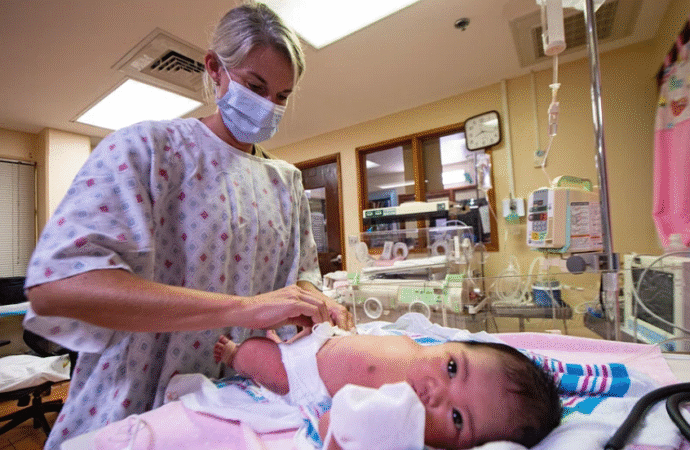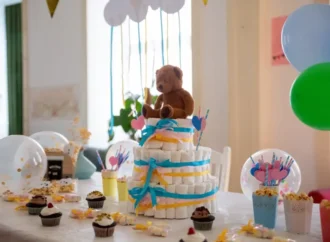A few years ago, some friends of mine had their seventh child. At home. By themselves. No expert help.
Things weren’t supposed to happen that way, but there was literally “no room at the inn” (hospital) when the time came for the baby to be born, and baby wasn’t about to be put on a waiting list.
Ironically, the mother later described the situation as the best birthing experience she’d had. That’s surprising, considering she didn’t have a hospital bed, an epidural, high-tech equipment monitoring her vitals, or even a nurse to offer soothing words of comfort.
So what made this birth so great?
I’ll wager it’s because the mother and father were empowered to take control of the situation and actually be parents, something that doesn’t happen in many births today.
I hesitate to use that word “empowered” – it’s used far too often in our society today and for ill-fitting reasons – but in this case, I’m simply echoing the words of a midwife friend of mine.
A former nurse in a hospital, this midwife explained that mothers who give birth at home or in more natural surroundings (vs. a hospital) tend to take far more ownership of their children, particularly if they catch the baby themselves. As I understand it, in a more natural birth setting, a mother looks down at her baby, processes that she herself just managed to push a human being out of her body, and generally will be off and running in taking care of the child as her instincts kick in.
By contrast, those parents my midwife friend witnessed giving birth in a hospital were far more timid about their child. “Can I touch him?” they would ask the medical staff, speaking of their own baby, often acting terrified when they were told that they could do this thing or that to care for the baby themselves.
These observations were not solely her own, my midwife friend explained; other midwives – even those on the completely opposite side of the political spectrum – have shared the same thing. Her conclusion was that this is just one of the earliest examples of how our society tries to undermine parental authority, telling them they simply don’t have the chops to make it in child rearing.
This attitude especially ramps up as the child grows, the education system and other bureaucratic entities telling parents to leave the task of raising the child to the experts rather than try to handle it themselves.
T. S. Eliot captured the essence of this attitude when he wrote the following in “Christianity and Culture”:
In the society desired by some reformers, what the family can transmit will be limited to the minimum, especially if the child is to be … manipulated by a unified educational system ‘from the cradle to the grave.’ And unless the child is classified, by the officials who will have the task of sorting him out, as being just like his father, he will be brought up in a different—not necessarily a better, because all will be equally good, but a different—school environment, and trained on what the official opinion of the moment considers to be ‘the genuinely democratic lines.’
In other words, when parental authority is undermined, so is the family, and when the family goes, the government steps in and takes over – a nanny state, literally.
In recent years many have observed that Americans are bringing fewer children into the world. “The total number of children that women and men ages 20 to 39 planned to have, on average, dropped from 2.3 in 2012 to 1.8 in 2023,” Pew Research recently reported.

Such drops may be one reason for the promotion of children in high places. Since taking office in January 2025, for example, Vice President JD Vance has regularly normalized bringing his children with him on trips, arguing for the need for more children in America, while President Donald Trump has underscored these actions by calling for $1,000 baby bonds given to those American citizens who bear children in the next few years.
For those who recognize the many problems a birth dearth will bring to America in the near future, these moves are a step in the right direction. But are they enough?
Perhaps we need to get to the root of the problem rather than just give out incentives to ease the symptoms. So if we want more Americans to have children, do we first need to recognize that parents are far more capable than we give them credit? And instead of tearing them down and telling them to leave their children to the experts, do we need to look for ways to restore their authority and build up the confidence they once had?
—
The republication of this article is made possible by The Fred & Rheta Skelton Center for Cultural Renewal.
Image Credit: Rawpixel
33 comments















33 Comments
Coreen Jack
June 27, 2025, 2:05 pmGoogle is now paying $300 to $500 per hour for doing work online work from home. Last paycheck of me said that $20537 from this easy and simple job. Its amazing and earns are awesome. No boss, full time freedom and earnings are in front of you. This job is just awesome. Every person can makes income online with google easily….
REPLY.
More Details For Us→→→→ https://Www.EarnApp1.Com
Hailey Benjaminson@Coreen Jack
June 27, 2025, 2:06 pm[ JOIN US ] Find USA Online Jobs (8000$-95000$ Weekly) safe and secure! Easy Acces To Information. Simple in use. All the Answers. Multiple sources combined. Fast and trusted. Discover us now! Easy & Fast, 99% Match.
jointhis site .…………>>> https://Www.HighProfit1.Com/
REPLYEMMA@Hailey Benjaminson
July 3, 2025, 12:14 pmI’m making over $13k a month working part time. I kept hearing other people tell me how much money they can make online so I decided to look into it. Well, it was all true and has totally changed my life. This is where I started
REPLY.
Reading This Article:—– http://Www.Payathome9.Com
Lauren Gregory@Hailey Benjaminson
August 6, 2025, 10:02 amWith joy in my heart and gratitude to God almighty i have come to tell the general public that Lord Gerald herbal medicine is the best remedy for Herpes and HIV/AIDS, I was a carrier of Herpes virus and I saw a testimony on how Lord Gerald cure Herpes, I decided to have a contact with him and asked him for help and he started the remedies for my health and prepare the herbal medicine for me which i use to cure myself. Thank God, now everything is fine, I’m cured by Lord Gerald herbal medicine, I’m very thankful to Lord Gerald and i will not stop publishing his name on the internet because of the good work he did for me, You can reach him on his email: [email protected] or
WhatsApp: +14242983869
LORD GERALD CAN AS WELL CURE THE FOLLOWING DISEASE:-
1. HIV/AIDS
2. HERPES
3. CANCER OF ALL KINDS
4. HSV
5. Hepatitis A,B,C
6. Diabetes
7. Parkinson’s disease
8. C.O.P.D
9.ALS
10. Coronary Artery Disease (Ischemic Heart Disease)
11. Alopecia
12.Bipolar disorder
13.Bedwetting
14.Carpal tunnel syndrome
15.Celiac disease
16.Ear Infections
17.Endometriosis
18.Epilepsy
19.Chlamydia
20.Syphilis
21.Gonorrhea
Natural remedy for curing HERPES and HIV. WhatsApp Lord Gerald on +14242983869
REPLYFeatherjourney@Coreen Jack
June 30, 2025, 11:29 amMy roomate's mom-in-regulation makes usd eighty one each hour at the laptop . She has been fired for eight months but remaining month her paycheck turned into usd 17367 just operating on the pc for a few hours…..
Reading This Article:———- https://Www.Cash43.Com
REPLYLawrenceMJones@Coreen Jack
July 3, 2025, 6:48 amGᴏᴏɢʟᴇ ʜᴀꜱ ʙᴇᴇɴ ᴀɴ ɪɴᴄʀᴇᴅɪʙʟᴇ ᴏᴘᴘᴏʀᴛᴜɴɪᴛʏ! ᴇᴀʀɴ 𝟣𝟪𝟢𝟢+ ʙᴜᴄᴋꜱ ᴡᴇᴇᴋʟʏ ꜰʀᴏᴍ ʜᴏᴍᴇ! ᴀ ꜰᴇᴡ ᴍᴏɴᴛʜꜱ ᴀɢᴏ, ɪ ᴡᴀꜱ ꜱᴛᴜᴄᴋ ɪɴ ᴀ ʀᴏᴜᴛɪɴᴇ, ʙᴀʀᴇʟʏ ᴍᴀᴋɪɴɢ ᴇɴᴅꜱ ᴍᴇᴇᴛ. ɴᴏᴡ, ɪ ᴇᴀʀɴ 𝟤𝟢𝟧+ ᴀ ᴅᴀʏ ᴡᴏʀᴋɪɴɢ ꜰʀᴏᴍ ʜᴏᴍᴇ ᴡɪᴛʜ ᴄᴏᴍᴘʟᴇᴛᴇ ꜰʟᴇxɪʙɪʟɪᴛʏ! ɴᴏ ᴇxᴘᴇʀɪᴇɴᴄᴇ? ɴᴏ ᴘʀᴏʙʟᴇᴍ.
REPLYᴊᴏɪɴ ɴᴏᴡ➤➤ http://www.get.money63.com
Lauren Gregory@Coreen Jack
August 6, 2025, 9:55 amWith joy in my heart and gratitude to God almighty i have come to tell the general public that Lord Gerald herbal medicine is the best remedy for Herpes and HIV/AIDS, I was a carrier of Herpes virus and I saw a testimony on how Lord Gerald cure Herpes, I decided to have a contact with him and asked him for help and he started the remedies for my health and prepare the herbal medicine for me which i use to cure myself. Thank God, now everything is fine, I’m cured by Lord Gerald herbal medicine, I’m very thankful to Lord Gerald and i will not stop publishing his name on the internet because of the good work he did for me, You can reach him on his email: [email protected] or
WhatsApp: +14242983869
LORD GERALD CAN AS WELL CURE THE FOLLOWING DISEASE:-
1. HIV/AIDS
2. HERPES
3. CANCER OF ALL KINDS
4. HSV
5. Hepatitis A,B,C
6. Diabetes
7. Parkinson’s disease
8. C.O.P.D
9.ALS
10. Coronary Artery Disease (Ischemic Heart Disease)
11. Alopecia
12.Bipolar disorder
13.Bedwetting
14.Carpal tunnel syndrome
15.Celiac disease
16.Ear Infections
17.Endometriosis
18.Epilepsy
19.Chlamydia
20.Syphilis
21.Gonorrhea
Natural remedy for curing HERPES and HIV. WhatsApp Lord Gerald on +14242983869
REPLYHailey Benjaminson
June 27, 2025, 2:06 pm[ JOIN US ] Find USA Online Jobs (8000$-95000$ Weekly) safe and secure! Easy Acces To Information. Simple in use. All the Answers. Multiple sources combined. Fast and trusted. Discover us now! Easy & Fast, 99% Match.
jointhis site .…………>>> https://Www.HighProfit1.Com/
REPLYMichaeleSProsser
June 28, 2025, 1:44 amI have earned and received $19,683 by working online from home. In previous month i have this income just by doing work for 2 hours maximum a day using my laptop. This job is just awesome and regular earning from this just great. Now everybody can now get this job and start making real money online just by follow instructions on this website…——–>> https://Www.joinSalary.Com
REPLYMichaeleSProsser
June 28, 2025, 1:47 amI have earned and received $19,683 by working online from home. In previous month i have this income just by doing work for 2 hours maximum a day using my laptop. This job is just awesome and regular earning from this just great. Now everybody can now get this job and start making real money online just by follow instructions on this website…
——–>> https://Www.joinSalary.Com
REPLYDianaDGarcia
June 28, 2025, 2:15 amGoogle pay 500$ per hour my last pay check was $19840 working 10 hours a week online. My younger brother friend has been averaging 22k for months now and he works about 24 hours a week. I cant believe how easy it was once I tried it out.
REPLYJust Open This Website….Www.Join.Work43.Com